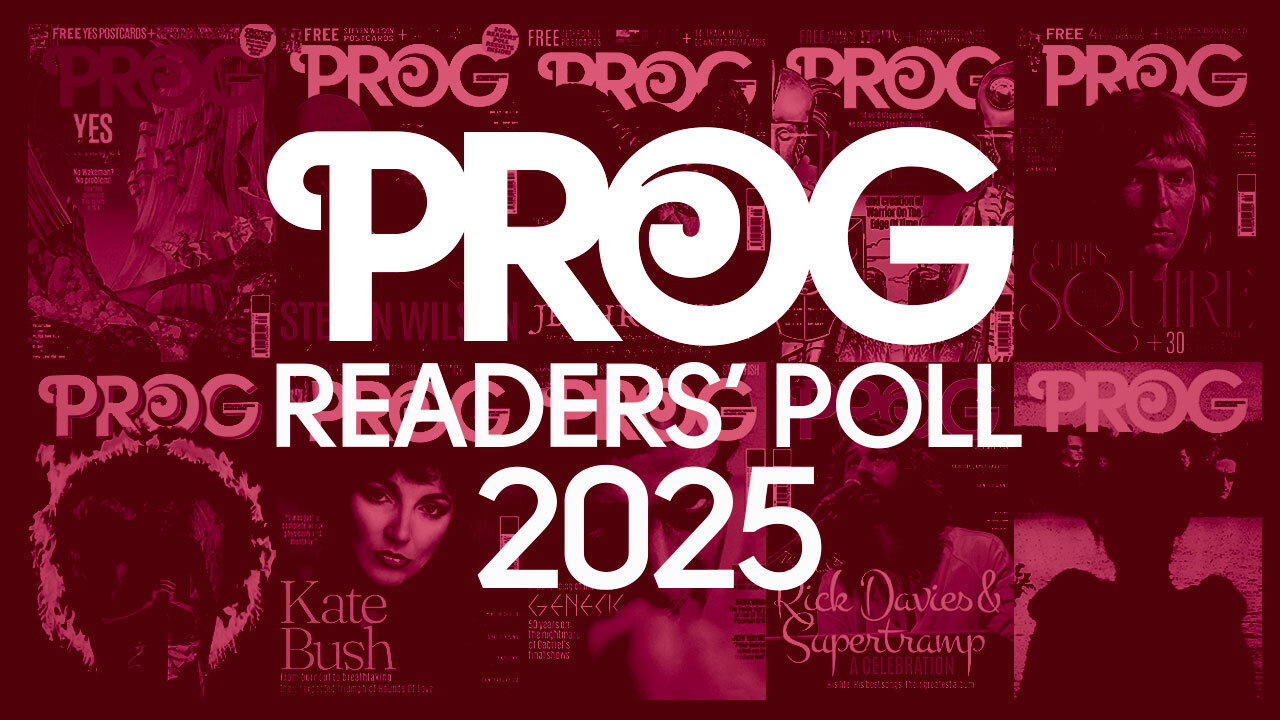Re-wired: How post-rock became part of prog
From Wire’s seminal Pink Flag debut through to the current crop of sonic pioneers, post-rock has evolved over the last four decades to become something surprising: a key part of prog music
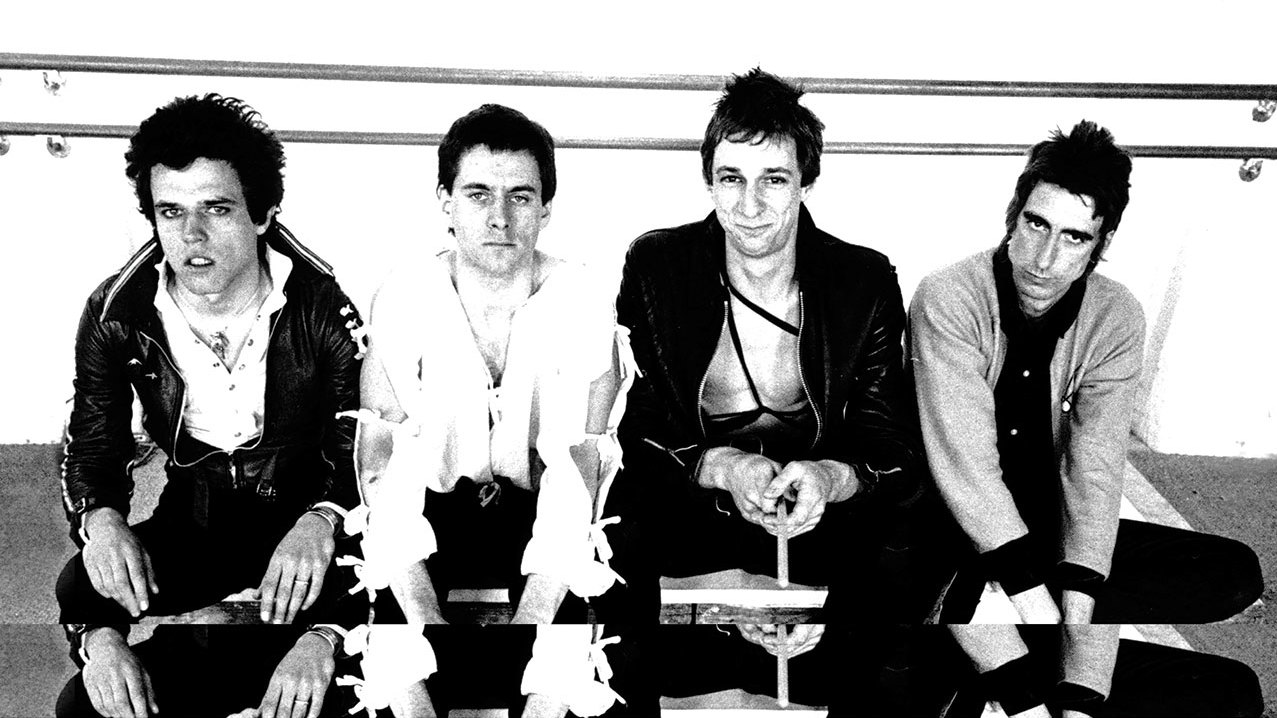
There’s a great song on Silver/Lead, the enthralling new album from Wire, that could easily be taken as some kind of manifesto. Diamonds In Cups features the simple lyric: ‘The course of creation is often quite strange/Keep your mind open, be willing to change.’
This adaptability and openness has been central to Wire’s development over the past 40 years, during which time they swiftly shook off their early punk connotations and evolved through distinct variations on art rock, electronica, ambient music, psychedelia and experimental sounds.
“Having an open mind has definitely been key,” states bassist and founder member Graham Lewis. “I came to Wire from art college and that’s what my teachers tried to kick into me. It was always about flexibility. When something no longer fulfils the needs you have, then maybe it’s time for a change. On occasions, when we’ve done that, it’s been a disaster, but it doesn’t stop you. Trying and failing is an absolutely integral part of the process. Otherwise, you never go forward. It’s the reason why Wire hasn’t had a linear history.”
Colin Newman, chief vocalist, guitarist and Lewis’ fellow songwriter, is in agreement. “Diamonds In Cups is very referential to Wire,” he says. “In the past, we’ve been offered headline tours doing Pink Flag or whatever, playing in big venues and commanding big fees and all the rest of it, but the band doesn’t really have a consciousness that understands why you’d play a lot of old stuff. It’s all about the future and always has been, from day one. The band was born in its classic format in an act of virtual patricide. We made ourselves into Wire and very quickly recorded our first album, released it, then very quickly jettisoned that material and moved on. It’s always been the modus operandi of the band: the future, the future, the future!”
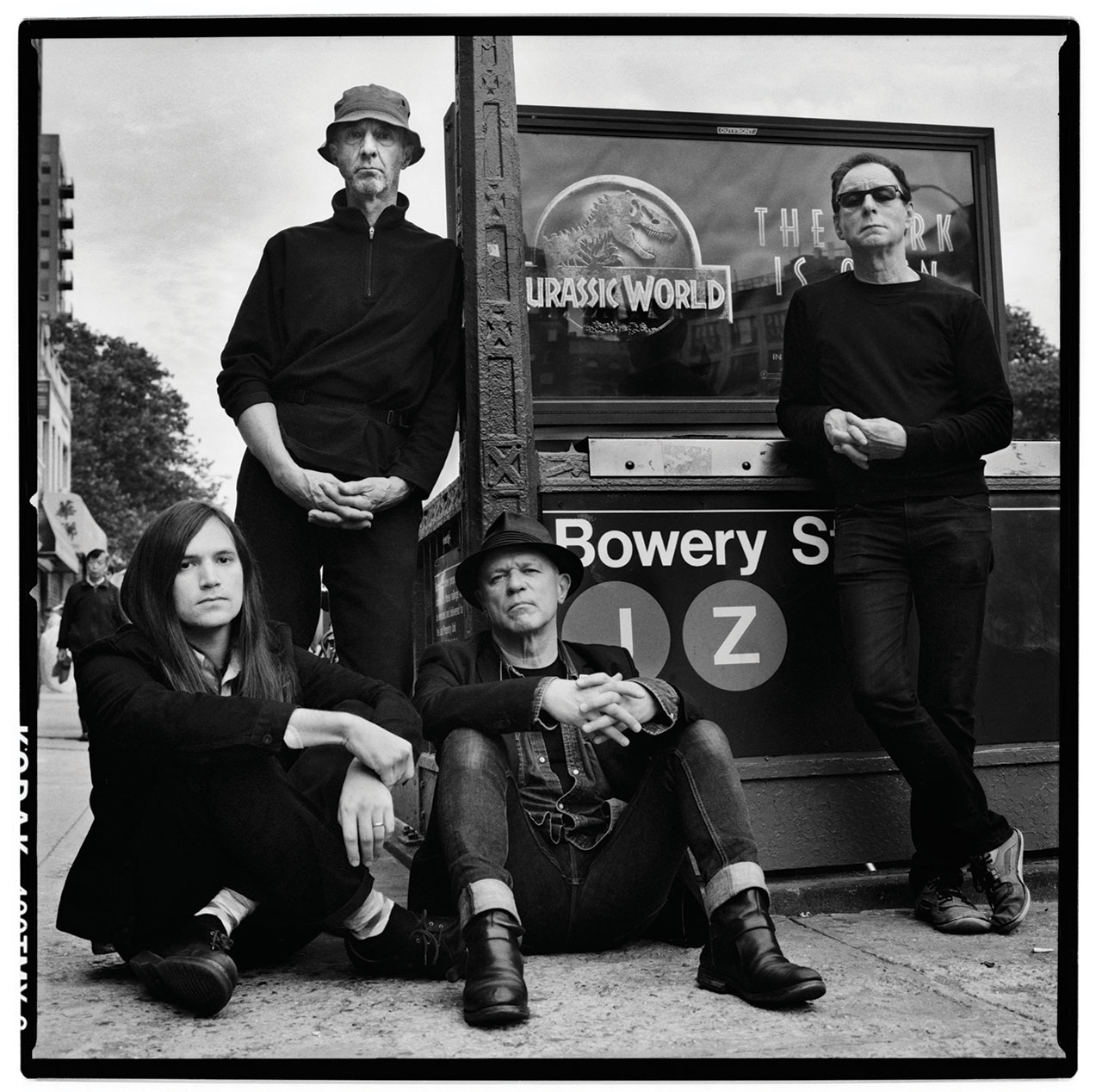
Silver/Lead has all the hallmarks of classic Wire: textural richness, economy of movement, lean melodies and absolute clarity of purpose. It’s an album that buzzes and breathes with the vitality of urgent young pups, rather than ageing blokes of a certain vintage. Nimble guitars and synths throw out sudden shapes and strange angles, carried onward by the minimalist rhythms of drummer Robert Grey, Wire’s third original member. By contrast, guitarist Matt Simms, who first joined the band in 2011, is less than half the age of his sexagenarian bandmates. Not that this has ever been an issue.
“Although Matt was so much younger than we were, he came from a similar mindset, in terms of his approach to music and the phenomenally catholic taste that he has,” explains Lewis. “There’s always been a great deal of intuition that goes into the making of Wire music. We don’t sit around and pontificate too much. It’s probably sacrilege to say this in Prog, but we had very limited musical skills when we started out – and had no wish to decorate – so everything was very simple. It was all about ensemble playing in as simple a way as possible. I think that’s remained very much part of the aesthetic.”
The timing of Silver/Lead poses something of a challenge for Wire. Released on the 40th anniversary of the band’s first gig as a four-piece, at The Roxy in London’s Covent Garden, the album offers an opportunity for reflection – especially as it’s also 40 years since debut Pink Flag, a startling masterclass in concision, wit and intensity.
Sign up below to get the latest from Prog, plus exclusive special offers, direct to your inbox!
It’s no surprise to discover that Wire have chosen to mark the occasion by doing what they’ve always done: moving on. Not only do they refuse to wallow in any sentimental nostalgia by revisiting the old songs, they’ve already lined up a bunch of summer shows across the US and Europe to showcase Silver/Lead. There’s also a series of international dates for DRILL, the cutting-edge mini-festival that Wire have been curating since 2013.

Nevertheless, the temptation remains to take stock of their remarkably influential career – one whose fandom extends from left‑field thinkers like My Bloody Valentine, Fischerspooner and R.E.M. to Flying Saucer Attack, Sonic Youth and Yo La Tengo. It’s slightly perverse, and entirely fitting, that a band who’ve always defied easy classification started life on a prog label (Harvest) just as punk broke.
“Wire is claimed variously by different schools, all of which are quite antagonistic towards each other,” reasons Newman. “There are people who think that we’re kind of hardcore and extreme – a band that hate anything that smacks of a tune – and then there are those who think Wire are an out-and-out pop group with weirdo rock tendencies. We’re seen as too clever by half, too hard to pin down. We don’t tick all the right boxes.
“But if we belong in any tradition, I would say there’s an element of Wire that comes out of 60s psychedelic pop, which is what developed into prog rock. For me, early Yes and Genesis are fantastic. I always felt that it made a lot of sense when we signed to Harvest back in the 70s. We were referred to as the Pink Floyd of our generation. Harmonically, there’s a similarly pastoral, English sound to Wire. It was one of the reasons why Nick Mobbs [who originally signed Floyd] was able to sign us to EMI as well, because they didn’t understand Pink Floyd at the time, but they ended up selling a lot of records. They didn’t understand Wire either, but unfortunately, by 1980, the culture had changed so much that nobody gave a stuff.”
It’s apposite, too, that Lewis, who once defined Wire’s main goal as “to be progressive”, should share Newman’s appreciation of early prog. “The first progressive record I heard was Disraeli Gears by Cream,” he recalls. “It didn’t seem to have anything to do with any music I’d come across before. Then I discovered things through listening to John Peel. I saw The Nice four times and Pink Floyd three times.
“I actually went to see Barclay James Harvest because I wanted to hear a Moog. And I do remember Egg, and hearing Sailor [1968] by Steve Miller, which we thought was really prog.
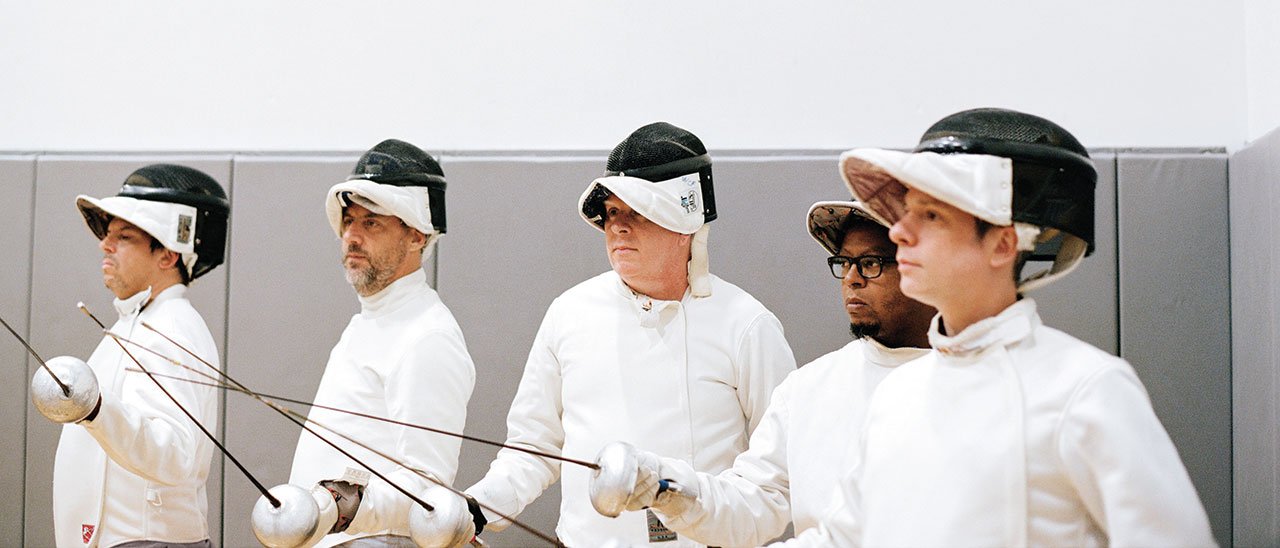
“By the time I was 19 and DJ’ing at art college, we were playing Can and Neu!. People thought you were totally off the planet for doing that. I saw Hawkwind when Lemmy was playing bass, doing Masters Of The Universe. We were devouring Captain Beefheart’s Trout Mask Replica as teenagers. I think that’s very progressive to me. And hearing some of the bands on Island, like King Crimson, was really exciting.
“Also, Thank Christ For The Bomb [1970] by the Groundhogs. And what about Kevin Ayers? I saw the Shooting At The Moon group when I was about 19, with Ollie Halsall, Lol Coxhill and a very young Mike Oldfield, wearing blue eyeshadow. All this stuff was so rich.”
It might be stretching things to claim Wire as a prog rock group, but the parallels are there nonetheless. There’s the same sense of unbound exploration, a collective impulse to realign and recalibrate the constituent parts of conventional rock music, an urge to create a new vocabulary from old narratives. More accurately, Wire foreshadowed the emergence of a more modern genre whose outlook and methodology wasn’t a whole lot different to prog: post-rock.
“In a weird way, I thought post-rock was what we were doing from the beginning,” Lewis asserts. “Particularly by the time we got to Chairs Missing [1978], when we actually had a bit of confidence about how we were going about it. I always thought that album sounded more like a sequenced group than people playing guitars. It wasn’t important that they were guitars – it was the noise, the sound, that really counted.”
If the basic definition of post-rock is the creation of a different kind of music using standard rock instrumentation, then Newman feels an affinity too.
“Wire is absolutely not rock,” he declares. “I don’t even like most rock music, to be honest. There’s always been that consciousness in Wire of everything being viewed through a fine art lens. So words like ‘context’ and ‘narrative’ become part of how you describe and look at the music. We don’t start with a concept. Instead, you figure out what it all means afterwards, so as not to pollute the creative moment with too much thinking.”
For bassist/keyboard player Alex Wilson, co-founder of Australian post-rock outfit sleepmakeswaves, the lineage is clear. “I think a lot of genres do bleed into each other,” he offers. “I love Wire, Joy Division, Television, Talking Heads and all that stuff that took the punk ethos and tried to apply it to new musical ideas.
“Post-rock feels like taking that to an extreme conclusion – how far can we deconstruct the expectations around what we should do with this set of instruments? Sleepmakeswaves try to be a fulcrum between the visceral intensity of hardcore, trying to be as much of a rock’n’roll killing machine as we can, but also embracing that sense of ambitious storytelling that comes out of prog.
“For us, that feels like an endlessly interesting combination to try to work out. It feels like there are always new things in there to discover.”
Despite their status as an instrumental band, the post-rock of sleepmakeswaves (whose latest album, this year’s momentous Made Of Breath Only, is a distant spiritual cousin of Jethro Tull’s Thick As A Brick) is very different to the music that first defined the genre back in the early 90s.
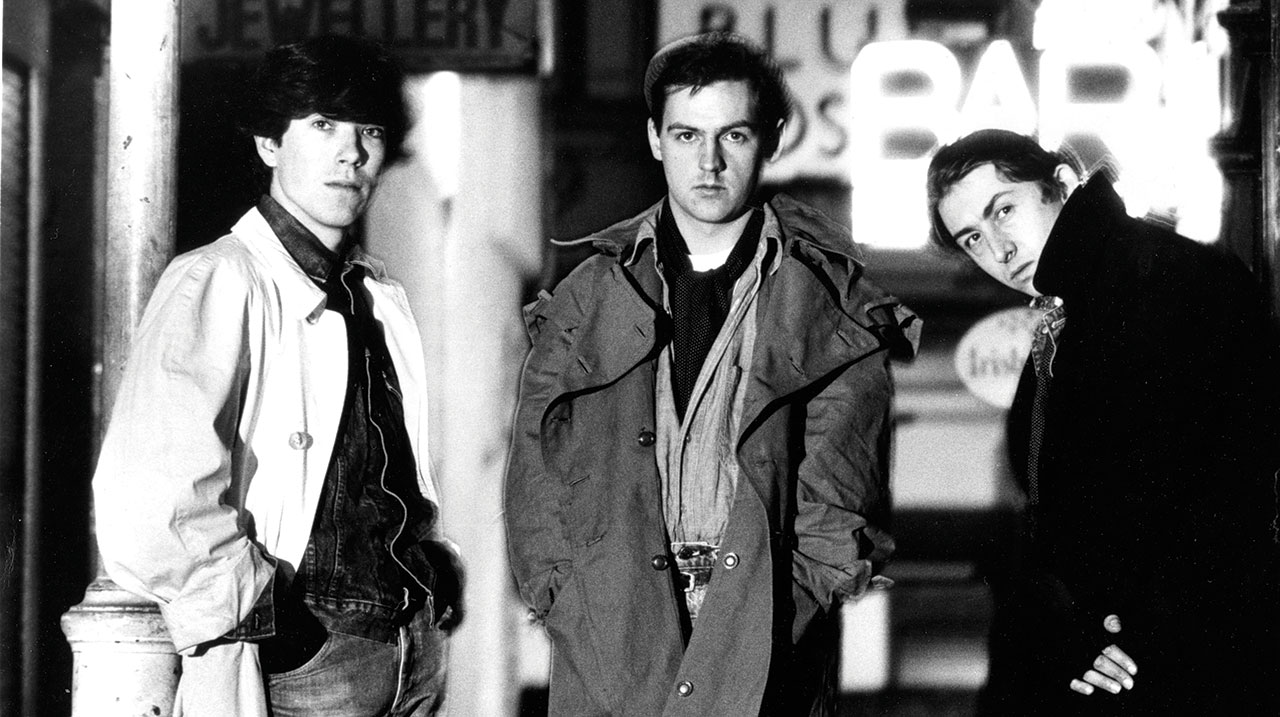
Creem journalist James Wolcott had actually used the phrase ‘post-rock’ as early as July 1975, in his assessment of Todd Rundgren’s proggy concept album, Initiation. Wolcott concluded that contemporary music had become so repetitive that “it’s time to go beyond rock”, though there was no real indication as to what form it might take. It was left instead to English writer Simon Reynolds, reviewing Bark Psychosis’ 1994 debut, Hex, to coin post-rock as a catch-all term for “using rock instrumentation for non-rock purposes, using guitars as facilitators of timbre and textures, rather than riffs and power chords”.
This was music that forewent all the showy posturing that was commonplace in so much rock and pop – and, it has to be said, some prog – and placed the emphasis squarely on the dynamic range and sheer emotional fire of the music itself. Traditional notions of verses and choruses were rejected in favour of rich, symphonic visions, intuitive pieces that might subside into periods of intense quiet, before rupturing into something harsh and thunderous. More often than not, especially in the early days, the effect was heightened by an absence of vocals. With the advantage of over 20 years’ hindsight, it’s easy to forget just how radical it all sounded.
“I have a very particular understanding of what post-rock is,” says Colin Newman, “because the person who promoted Tortoise’s Millions Now Living Will Never Die [1996] – which was the first album to be tagged as that – also promoted our swim ~ stuff [the label that Newman co-founded with Malka Spigel in 1993]. He was telling me who was picking up on that record and why.
“Through the 90s in Britain, Britpop was mainstream and the massive rise of house, techno and drum’n’bass became the most important focus of underground music. But drum’n’bass was really a British thing – it didn’t have any parallels in America. So there was a whole culture around that music that America, which had already been through grunge, didn’t really have. And it was Tortoise who had somehow played into that audience. There was a feeling that this was what Americans who wanted to play underground instrumental music could do. And they were so massively influential. Without Tortoise, there wouldn’t have been Mogwai or loads of others. At the end of the 90s, as the dominant musical styles started to break down, there was a feeling that post-rock was something that somehow made sense.”
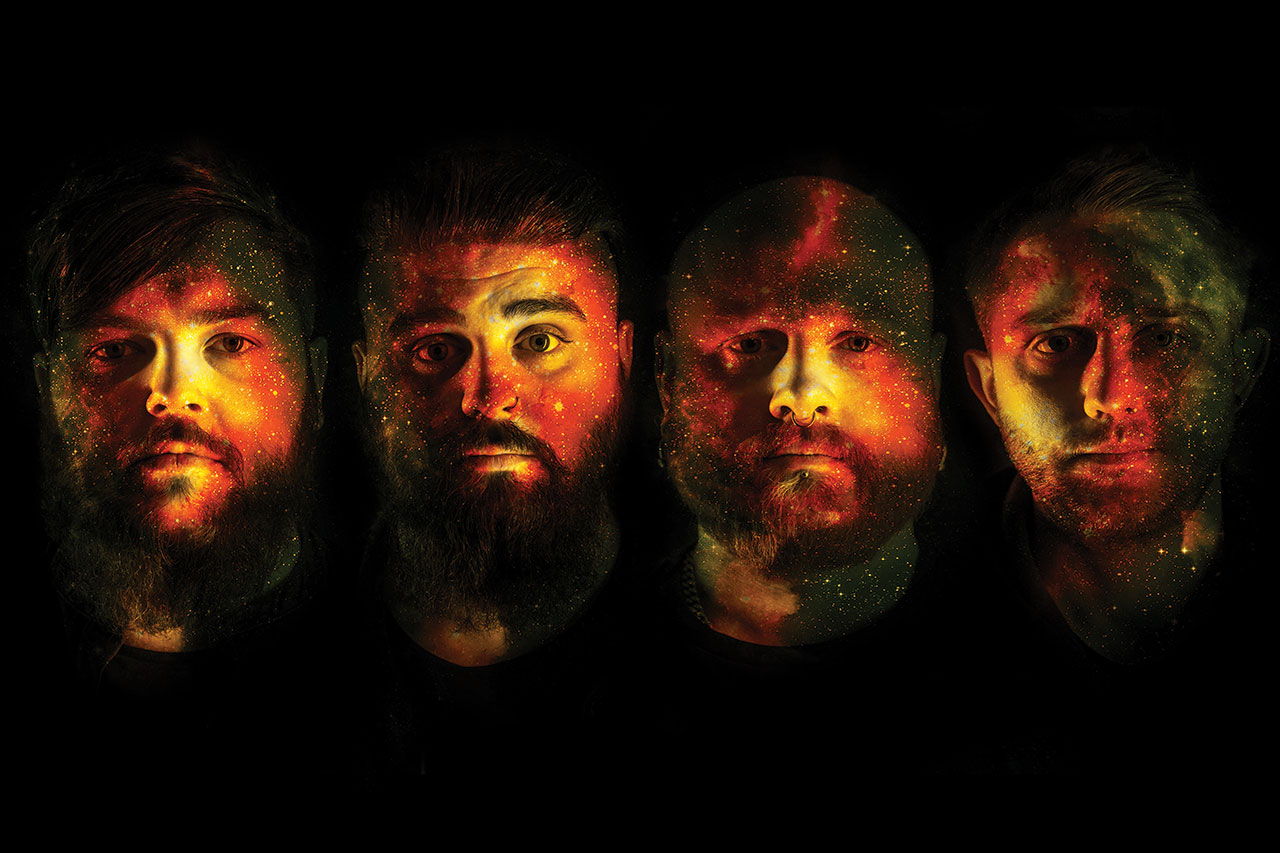
In Storm Static Sleep, his absorbing study of the rise and influence of post-rock, author Jack Chuter suggests that its jump-off point was Talk Talk’s 1988 opus, Spirit Of Eden. Here was a band which had evolved into an almost diametric opposite of its early self, eschewing new-wave pop for experimental music with a vast dynamic range, distended songs and no central melodic core.
Spirit Of Eden had its roots in the free jazz of John Coltrane, Ornette Coleman and, crucially, the anti-rock that emerged from Germany in the late 60s and early 70s: Can, Neu!, Amon Düül II and Ash Ra Tempel.
By the time of 1991’s Laughing Stock, Talk Talk’s arguably superior follow‑up, the American underground had also started rearranging rock’s DNA. Spiderland, the remarkable debut from Kentucky quartet Slint, transcended the band’s beginnings on the US hardcore scene by offering extreme fluctuations in volume and intensity, along with an appreciation of silence that guitarist David Pajo referred to as “negative space”. Born from months of practice in drummer Britt Walford’s basement, Spiderland was an endlessly mutating work, governed by fluid time signatures, rich details and a textural sweep that ran from the abrasive to the pacific.
The album has since been lauded as a key text in the post-rock movement, a direct precursor to the likes of Mogwai, Godspeed You! Black Emperor, Explosions In The Sky and 65daysofstatic. But it also invites comparison to classic prog, a parallel that Slint seemed blissfully unaware of back in the day.
“We played at this Thai restaurant in Chicago, not long after Spiderland came out,” recalls Pajo. “Jesus Lizard and King Kong were on the bill too. At one point, I went to the bathroom and overheard two people talking. One of them said, ‘Are you gonna see Slint next?’ When the other guy asked what we were like, he went, ‘They sound like King Crimson, but they don’t know it.’ And I remember feeling like that was an insult! Of course, it wasn’t an insult at all, but at the time it was pretty foreign to what we thought we sounded like.”
As the new millennium dawned, post-rock became something of a reductive term, lazy shorthand for a simple set of signifiers. This complex, expansive and deeply emotive music was thus often viewed as little more than instrumental guitar noise with a loud/quiet aesthetic. Much like prog, it tended to be hopelessly misunderstood by those on the outside of it. In truth, again like prog, it was an ambiguous form of outlier music that balanced the cerebral with the elemental, a repository for a vast drama of styles and ideas.
“I think post-rock is a kind of subgenre created from prog,” offers Conor Anderson of Glasgow combo Dialects, one of post-rock’s most promising new talents. “Over the years it’s been applied to instrumental bands that create those big soundscapes – Sigur Rós, Explosions In The Sky, Mogwai – but it’s evolved more lately. Bands like And So I Watch You From Afar and Maybeshewill always get that post-rock tag, but they don’t sound like Explosions In The Sky or This Will Destroy You by any means. Some of the songs are a lot faster-paced, heavier and even quite folky.”

This nebulous new definition of post-rock is much closer to the characteristics of prog: a place where almost everything is fair game – electronica, jazz, metal, ambient, chamber rock, classical music – in the pursuit of something vivid and meaningful.
“The genre as a whole has kind of reacted against the perception that it was getting stagnant,” says Alex Wilson. “It’s embracing other genres again, as a way of taking those basic sounds and doing something fresh with them. For sleepmakeswaves, prog was a natural choice. A lot of us in the band are fans of people like Opeth, Karnivool, TesseracT, Sikth.
“In the 10 years since we started, the music industry has become way more receptive to ideas around post-rock and progressive rock. Myself and Nick DiDia, who’s produced our last couple of records, bond really hard over bands like Genesis. I still find myself going back and listening to Firth Of Fifth, from Selling England By The Pound [1973], and being blown away by how it shifts between all these different sections. There’s a lot of emotion packed into one space and I feel a real affinity with that philosophy and ambition.”
And So I Watch You From Afar, Waking Aida, Russian Circles, This Will Destroy You, Alcest, Jambinai and Hammock are just a few modern examples of post-rock expanding its language and assimilating an ‘anything goes’ philosophy.
For Dave Martin, frontman/guitarist with Leeds collective I Like Trains, a band who continue to overstep post‑rock, all this “feeds into prog when you look at the bigger picture, in terms of song structures and the sort of tapestry approach to songwriting. And using it as an influence in all aspects – the aesthetics, the videos, the performance. I can totally get where the parallels are. We never aspired to stand still – we try to be inspired by different things with each record. For me, the most exciting music occurs at the boundaries of genre classification. That’s what really sparks”.
“You can think big,” concludes Alex Wilson. “I like to think of post‑rock as continuing that prog legacy of the late 60s and early 70s, where there was a sense that anything was possible with those records. The idea that you can experiment, and that the audience is going to go with you, is still just as relevant.”
Wire’s new album Silver/Lead is available now on Pinkflag. See www.pinkflag.com for more information.
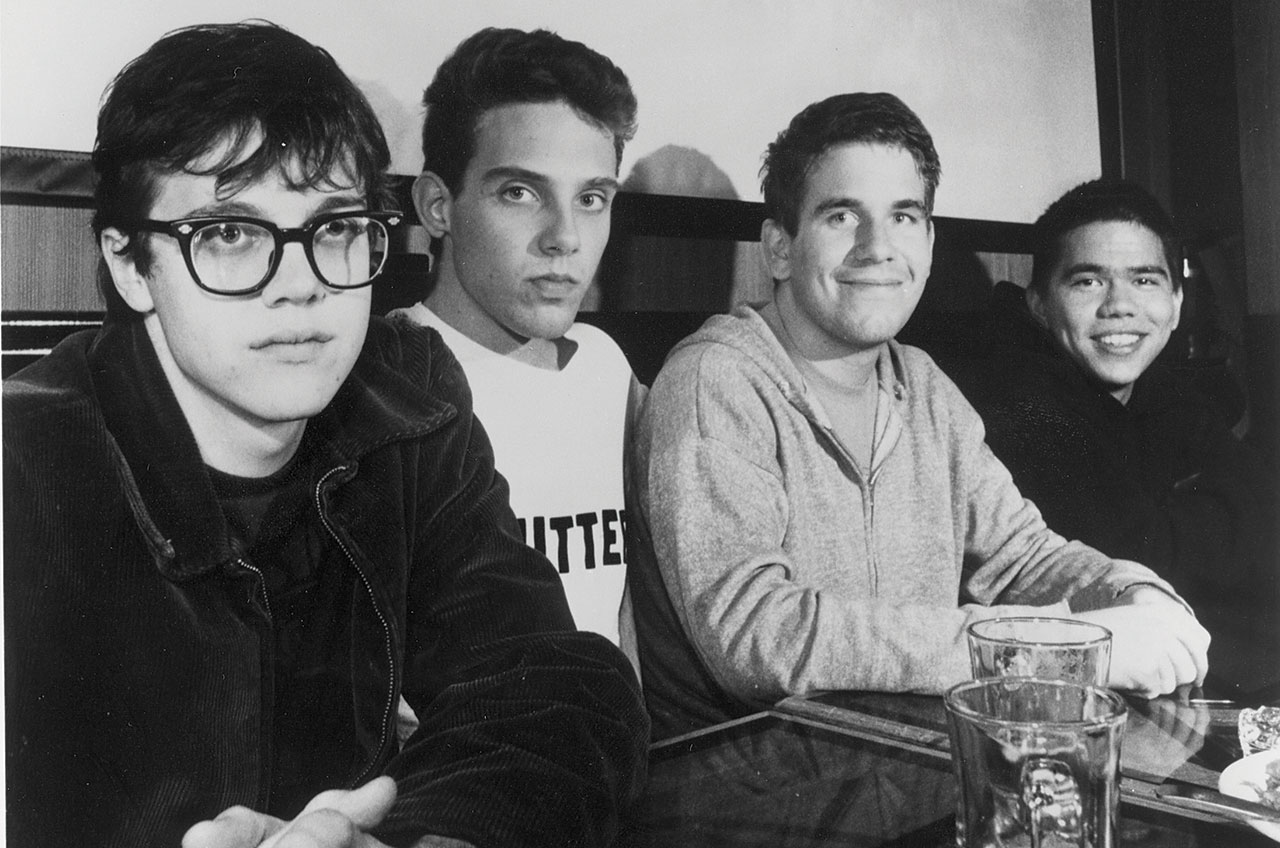
A POST-ROCK PLAYLIST:
Your introduction to post-rock…
Slint - Good Morning, Captain (Spiderland, 1991)
Marked by grand fluctuations in volume and intensity, irregular time signatures and a playful ambience largely missing from conventional music, Spiderland saw the Kentucky four-piece laying down a blueprint for post-rock.
Talk Talk - Ascension Day (Laughing Stock, 1991)
Talk Talk went from new wave chart stars to experimental avatars within a decade. This swansong was a convulsive noise collage, equally indebted to Can and Coltrane, consisting of free improvisations on a loose theme.
Tortoise - Djed (Millions Now Living Will Never Die, 1996)
As a crucible of post-rock, Chicago threw up a succession of bands in the 90s, but none of them were more influential than Tortoise, whose second album took surf rock, jazz and electronica into startling new terrain.
Sigur Rós - Svefn-G-Englar (Ágætis Byrjun, 1999)
The literal translation of Ágætis Byrjun (‘a good beginning’) was apt, the Icelandic quartet creating a masterpiece whose ethereal textures, graceful orchestration and other‑worldly sense of time was only tenuously linked to the past.
Godspeed You! Black Emperor - World Police And Friendly Fire (Lift Your Skinny Fists Like Antennas To Heaven, 2000)
This second studio effort offered a vast sprawl of cinematic instrumentals that exploded and receded in hypnotic style.
Mogwai - You Don’t Know Jesus (Rock Action, 2001)
Mogwai were as responsible as anyone for introducing post-rock into the mainstream. Their back catalogue is stuffed with gems, but Rock Action was a near-perfect assimilation of polar dynamics, playful humour and synthetic grain.
Explosions In The Sky - Your Hand In Mine (The Earth Is Not A Cold Dead Place, 2003)
As if to dispel any notions of post-rock as a repository of gloom, Texan outliers Explosions In The Sky brought ravishing melodies and dizzy crescendos to their breathtaking third album.
This Will Destroy You - The Mighty Rio Grande (This Will Destroy You, 2008)
The Texan quartet’s debut placed the emphasis on subtlety and texture rather than swells of noise, the result being a meditative moodscape that drew heavily from ambient music.
65daysofstatic - Prisms (Wild Light, 2013)
By the time of their fifth album, Sheffield’s 65daysofstatic had emerged as the most progressive of post-rock outfits, boosting their crushing guitar instrumentals with sampled loops, electronica and big beats.
sleepmakeswaves - Tundra (Made Of Breath Only, 2017)
The self-styled “crescendo-core” of Australia’s sleepmakeswaves reached a peak on this year’s Made Of Breath Only, a concept album about loss and transience that combined the charge of hardcore with the vaulting ambition of prog.
The 12 most influential post-rock records
The latest essential post-rock releases - album review
Korean post-rockers Jambinai are putting the Seoul back into prog
Freelance writer for Classic Rock since 2008, and sister title Prog since its inception in 2009. Regular contributor to Uncut magazine for over 20 years. Other clients include Word magazine, Record Collector, The Guardian, Sunday Times, The Telegraph and When Saturday Comes. Alongside Marc Riley, co-presenter of long-running A-Z Of David Bowie podcast. Also appears twice a week on Riley’s BBC6 radio show, rifling through old copies of the NME and Melody Maker in the Parallel Universe slot. Designed Aston Villa’s kit during a previous life as a sportswear designer. Geezer Butler told him he loved the all-black away strip.

